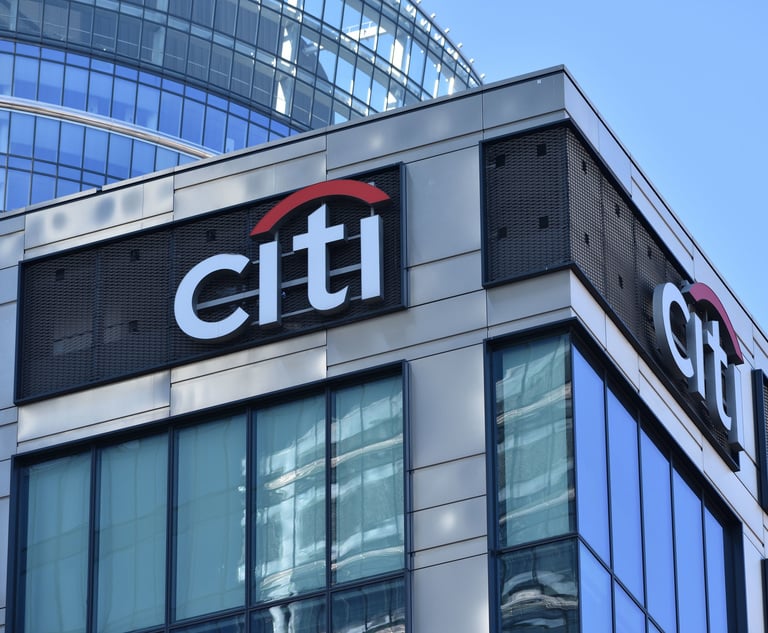 Photo: BRO.vector/Shutterstock
Photo: BRO.vector/Shutterstock Representations and Warranties Insurance and Public Company Transactions
RWI has become increasingly available for public company transactions to mitigate risk associated with a public target's breach of representations and warranties. For this edition of their Corporate Insurance Law column, Howard B. Epstein and Theodore A. Keyes collaborated with colleagues at McGill and Partners to discuss the use of RWI in public company deals.
June 15, 2022 at 12:00 PM
9 minute read
When first introduced, Representations and Warranties Insurance (RWI) proved attractive to parties to private Merger & Acquisition (M&A) transactions primarily because it allowed sellers to reduce their exposure to post-closing indemnity obligations arising from breaches of representations and warranties by transferring some of the risk to the insurer. As the use of RWI has increased over the past decade, it has become more common for RWI to be used either as a complete substitute for a seller indemnity for breaches of representations and warranties (in the absence of seller fraud) or for the seller to retain only a nominal indemnity obligation capped at an amount equivalent to all or a portion of the retention under the RWI policy (typically .75%-1% of enterprise value, in the aggregate, for domestic transactions).
Transactions in which the representations and warranties do not survive closing and sellers retain no indemnity risk are often referred to as "public-style" transactions—because, in part due to their disparate shareholder base, public companies do not typically provide indemnities to purchasers. Insurers' willingness to issue RWI policies in connection with public-style private M&A transactions is one of the factors that have spurred growth in the RWI market—and the market has skyrocketed in recent years. According to a recent American Bar Association (ABA) study, from 2020 through the first quarter of 2021, 65% of private M&A transaction agreements explicitly referred to RWI, up from 52% during the period from 2018-2019 and 29% during the period from 2016-2017. See ABA Private Target Mergers & Acquisitions Deal Points Study (2021).
This content has been archived. It is available through our partners, LexisNexis® and Bloomberg Law.
To view this content, please continue to their sites.
Not a Lexis Subscriber?
Subscribe Now
Not a Bloomberg Law Subscriber?
Subscribe Now
NOT FOR REPRINT
© 2025 ALM Global, LLC, All Rights Reserved. Request academic re-use from www.copyright.com. All other uses, submit a request to [email protected]. For more information visit Asset & Logo Licensing.
You Might Like
View All

Deal Watch: Deals, IPOs Flow as Banking Regulation Is Expected to Get Lighter
11 minute read
New York-Based Skadden Team Joins White & Case Group in Mexico City for Citigroup Demerger

Big Law Sidelined as Asian IPOs in New York Are Dominated by Small Cap Listings
Law Firms Mentioned
Trending Stories
- 1Uber Files RICO Suit Against Plaintiff-Side Firms Alleging Fraudulent Injury Claims
- 2The Law Firm Disrupted: Scrutinizing the Elephant More Than the Mouse
- 3Inherent Diminished Value Damages Unavailable to 3rd-Party Claimants, Court Says
- 4Pa. Defense Firm Sued by Client Over Ex-Eagles Player's $43.5M Med Mal Win
- 5Losses Mount at Morris Manning, but Departing Ex-Chair Stays Bullish About His Old Firm's Future
Who Got The Work
J. Brugh Lower of Gibbons has entered an appearance for industrial equipment supplier Devco Corporation in a pending trademark infringement lawsuit. The suit, accusing the defendant of selling knock-off Graco products, was filed Dec. 18 in New Jersey District Court by Rivkin Radler on behalf of Graco Inc. and Graco Minnesota. The case, assigned to U.S. District Judge Zahid N. Quraishi, is 3:24-cv-11294, Graco Inc. et al v. Devco Corporation.
Who Got The Work
Rebecca Maller-Stein and Kent A. Yalowitz of Arnold & Porter Kaye Scholer have entered their appearances for Hanaco Venture Capital and its executives, Lior Prosor and David Frankel, in a pending securities lawsuit. The action, filed on Dec. 24 in New York Southern District Court by Zell, Aron & Co. on behalf of Goldeneye Advisors, accuses the defendants of negligently and fraudulently managing the plaintiff's $1 million investment. The case, assigned to U.S. District Judge Vernon S. Broderick, is 1:24-cv-09918, Goldeneye Advisors, LLC v. Hanaco Venture Capital, Ltd. et al.
Who Got The Work
Attorneys from A&O Shearman has stepped in as defense counsel for Toronto-Dominion Bank and other defendants in a pending securities class action. The suit, filed Dec. 11 in New York Southern District Court by Bleichmar Fonti & Auld, accuses the defendants of concealing the bank's 'pervasive' deficiencies in regards to its compliance with the Bank Secrecy Act and the quality of its anti-money laundering controls. The case, assigned to U.S. District Judge Arun Subramanian, is 1:24-cv-09445, Gonzalez v. The Toronto-Dominion Bank et al.
Who Got The Work
Crown Castle International, a Pennsylvania company providing shared communications infrastructure, has turned to Luke D. Wolf of Gordon Rees Scully Mansukhani to fend off a pending breach-of-contract lawsuit. The court action, filed Nov. 25 in Michigan Eastern District Court by Hooper Hathaway PC on behalf of The Town Residences LLC, accuses Crown Castle of failing to transfer approximately $30,000 in utility payments from T-Mobile in breach of a roof-top lease and assignment agreement. The case, assigned to U.S. District Judge Susan K. Declercq, is 2:24-cv-13131, The Town Residences LLC v. T-Mobile US, Inc. et al.
Who Got The Work
Wilfred P. Coronato and Daniel M. Schwartz of McCarter & English have stepped in as defense counsel to Electrolux Home Products Inc. in a pending product liability lawsuit. The court action, filed Nov. 26 in New York Eastern District Court by Poulos Lopiccolo PC and Nagel Rice LLP on behalf of David Stern, alleges that the defendant's refrigerators’ drawers and shelving repeatedly break and fall apart within months after purchase. The case, assigned to U.S. District Judge Joan M. Azrack, is 2:24-cv-08204, Stern v. Electrolux Home Products, Inc.
Featured Firms
Law Offices of Gary Martin Hays & Associates, P.C.
(470) 294-1674
Law Offices of Mark E. Salomone
(857) 444-6468
Smith & Hassler
(713) 739-1250






